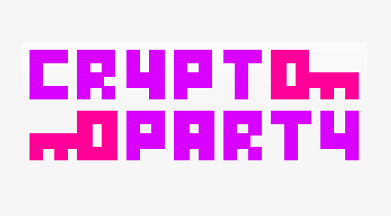6 Feb 2014 | Events, Media Freedom, Uncategorized

Join Index on Censorship for a lively discussion of the past and future of Britain’s free press.
2014 is set to be a pivotal year for UK media. The new defamation law will see its first tests, and the press and campaigners are rushing to establish a new regulator. Is the free press under threat? How much of a difference will new libel laws matter? Is the debate already out of date?
With Gill Phillips (Legal Director, Guardian Media Group), Gavin Millar QC (Doughty Street Chambers), Jonathan Heawood (Director of the Impress Project), Tom Phillips (Senior Writer, Buzzfeed UK), Padraig Reidy (Index on Censorship, Chair).
WHEN: Wednesday 19th February 2014, 18:30 – 20:00 inc. drinks
WHERE: Doughty St Chambers, 53-54 Doughty St, WC1N 2LS
TICKETS: RSVP here
@IndexEvents – #lifeafterleveson
Generously supported by

6 Feb 2014 | Events
 Join us on Feb 14 for a Google Hangout kick off our Drawing the Line programme of monthly youth events. Since its Valentines Day we’ll be in the mood to talk about love and free expression.
Join us on Feb 14 for a Google Hangout kick off our Drawing the Line programme of monthly youth events. Since its Valentines Day we’ll be in the mood to talk about love and free expression.
Love and -– more specifically -– same-sex love has been top of the international news agenda in the last few months with Nigeria passing a law banning homosexuality and the debates raging around Russia’s attitude to the LGBT community ahead of the Sochi 2014 Games. So with Valentine’s Day just round the corner, Index on Censorship wants to know from you-
Should we promote same-sex relationships?
We want to hear what you think! You can get involved now on Twitter and Facebook using the hashtag #LoveandFEX.
- Do you think we should have better education in schools on LGBT rights?
- Should we give these groups a platform?
- Do you even think this is a form of free expression?
At 12pm on Friday 14th February, a day dedicated to love, we will host a Google Hangout with Brian Pellot, Director of Global Strategy and Religious Freedom Editor at Religion New Service and Joel Bedos, International Coordinator for International Day Against Homophobia (IDAHO) to debate the issues.
To have your say on the day join the Hangout On Air here.
6 Feb 2014 | Events

Join English PEN and Open Rights Group on a day of global protest against mass surveillance, as civil liberties groups and activists around the world unite to defend privacy and freedom of expression online. With keynote speakers and tech experts to advise you on your privacy and security online.
Since Edward Snowden’s first revelations about the National Security Agency’s collection of US data last summer, the British public has witnessed a series of alarming disclosures regarding the extent of the surveillance programmes operated by US and UK intelligence services.
Guest speakers from leading privacy, freedom of expression and human rights groups in the UK will announce a new coalition, Don’t Spy On Us, calling for legal reform and judicial oversight of the intelligence service’s mass surveillance programme.
This event is FREE, with a bar, live demonstrations and keynote speakers.
When: Tuesday 11th February, 7:00pm onwards
Where: Free Word Centre, EC1R 3GA
Tickets: FREE but Reserve your tickets
Presented by

6 Feb 2014 | Digital Freedom, Iran, Middle East and North Africa, News and features
The idea of blogging and social media in Iran was once likely to invoke images of the 2009 Green Movement, where these platforms played a part in regular people standing up to a repressive, conservative regime, calling for reforms and demanding civil liberties. These days, it may be more linked with the country’s political elites, who really seem to have taken to communicating through Twitter and Facebook — sites now blocked for most of the population.
But while it was perhaps always expected that tech-savvy, reformist activists would find ways around the social media censorship, it may come as a surprise that some of Iran’s most conservative do the same.
A new report by Small Media sheds light on the Arzeshi, a hardline, conservative faction of online activists, devoted to the principles of the 1979 revolution and the supreme leader. The report found that the Arzeshi work around online restrictions, appearing on banned sites. In particular, the report looks at blogs and Google+, and analyses the activity of 75 Arzeshi accounts on Twitter — a site that, bar a technical glitch last September, has been blocked in Iran since 2009.
However, while the government claims to have a huge number of online supporters, the report tells a different story. Far from being an active, viral network, “the vast majority” of Arzeshi sites “were poorly-connected, hardly-read, and contained unoriginal content pasted from other sites.”
James Marchant, Small Media’s Research Manager, said: “This report is the first piece of in-depth research to illustrate the reality of Iran’s secretive community of online conservative activists. It shows that contrary to all government claims, the Arzeshi community is actually very fragmented and inward-looking – it is a long way from the energetic activist army touted by senior Iranian officials.”
This article was originally published on 6 February 2014 at indexoncensorship.org






